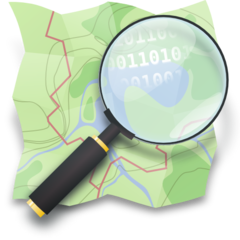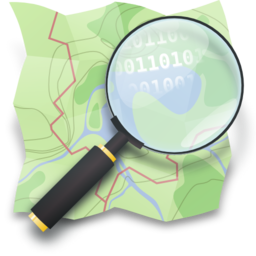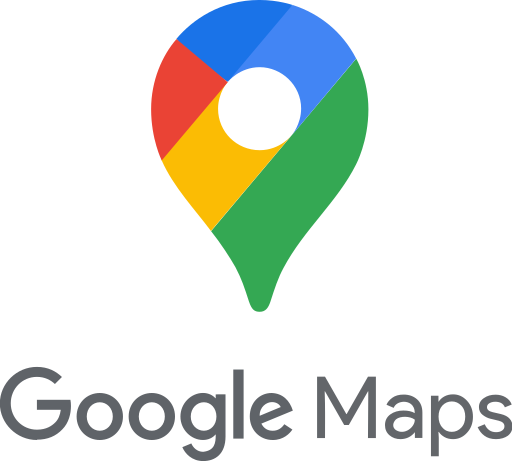OpenStreetMap
Connect OpenStreetMap's collaborative mapping platform to your Webflow site for cost-effective, customizable maps. Display store locations, visualize service areas, and create interactive location-based experiences without Google Maps fees or restrictions.

How to integrate OpenStreetMap with Webflow
Connecting OpenStreetMap to your Webflow site opens possibilities beyond basic map embedding. While Webflow's native map element only supports Google Maps, OpenStreetMap integration offers complete control over styling, data ownership, and advanced features like CMS-connected locations and real-time updates. Choose this approach when you need custom map styling, want to avoid API fees, or require features like user-generated content and complex geographic visualizations.
Use the Dynamic Map app
The Dynamic Map app by No Code Flow provides the most straightforward way to add OpenStreetMap to Webflow. This marketplace app connects directly to your CMS, allowing you to create interactive maps with custom pins, filters, and search functionality — all styled within Webflow Designer. Install Dynamic Map from the marketplace to get started.
Key capabilities:
- Switch between map providers including OpenStreetMap, Mapbox, and Google Maps
- Connect CMS collections to automatically generate map markers from your content
- Add custom pins and popups with images, descriptions, and links
- Enable advanced filtering with text search, checkboxes, and range sliders
- Style everything in Designer without touching code
The app maintains full design control within Webflow, making it ideal for directories, real estate listings, and location-based services. Regular updates ensure compatibility and new features.
Embed OpenStreetMap directly
For basic map needs, embed OpenStreetMap using its native share feature. Visit openstreetmap.org, navigate to your desired location, click Share, then select HTML to copy the iframe code. Paste this into a Webflow Embed element.
What you can do:
- Display a specific location with pan and zoom controls
- Show area maps for neighborhoods or regions
- Maintain attribution automatically included in the embed
This method works well for contact pages or single locations but lacks dynamic features and CMS integration.
Build with Webflow and OpenStreetMap APIs
For maximum control, integrate OpenStreetMap data using JavaScript libraries and APIs. This approach enables real-time updates, complex visualizations, and deep CMS integration through custom code.
Core capabilities:
- Fetch map data with Overpass API for specific features
- Display custom tiles using Leaflet.js or MapLibre GL JS
- Geocode addresses through Nominatim
- Create data overlays for analytics and visualization
Interactive maps with Leaflet.js
Add Leaflet.js to create fully interactive maps. Include the library via CDN in your site settings, then initialize maps in custom code blocks. The Interactive CMS-based map project demonstrates connecting Leaflet maps to Webflow CMS data.
Implementation steps:
- Add Leaflet CSS and JavaScript to site head
- Create a div container for your map
- Initialize the map with OpenStreetMap tiles
- Pull location data from CMS to create markers
Geographic queries with Overpass API
Query specific OpenStreetMap features using Overpass API. Find restaurants, parks, or any tagged locations within your area using Overpass QL queries.
Example uses:
- Display all coffee shops in a neighborhood
- Show public transit stops near properties
- Map hiking trails or bike paths
- Visualize business categories by area
Address search with Nominatim
Enable location search using Nominatim's geocoding service. Convert addresses to coordinates or find addresses from map clicks through search and reverse geocoding.
Common implementations:
- Add search bars to find locations
- Convert form submissions to map markers
- Display addresses for clicked locations
- Validate user-submitted locations
What you can build
Integrating OpenStreetMap with Webflow enables powerful location-based experiences:
- Multi-location business directories: Create searchable maps showing all franchise locations with custom filters for services, hours, and amenities — perfect for restaurant chains or retail networks
- Real estate platforms: Build property search interfaces with neighborhood data overlays showing schools, transit, and local businesses pulled directly from OpenStreetMap
- Event and venue guides: Design interactive festival maps with vendor locations, stages, and facilities that update dynamically as organizers add CMS entries
- Community resource maps: Develop civic platforms displaying public services, NGO locations, or disaster response resources with crowdsourced updates
Frequently asked questions
Yes, the Dynamic Map app provides full OpenStreetMap integration without code. You can also embed basic maps using OpenStreetMap's share feature, which generates iframe code you paste into Webflow's Embed element. For details on embedding options, see the OSM Export documentation.
The Dynamic Map app automatically syncs with your CMS collections, creating markers from location data. For custom implementations, use JavaScript to fetch CMS items and create map markers with libraries like Leaflet.js. The Interactive Map with LeafletJS example shows how to connect CMS data to map markers using custom code.
OpenStreetMap data is free to use, but the default tile servers have usage policies limiting requests. For production sites, use commercial tile providers or self-host tiles. Review the OSM Tile Usage Policy for guidelines on appropriate use and consider alternatives for high-traffic implementations.
Yes, you must include "© OpenStreetMap contributors" attribution on any map using OSM data. The Dynamic Map app and standard embeds handle this automatically. For custom implementations, add attribution as specified in the OSM Copyright guidelines to comply with the Open Database License.
Yes, extensive customization is possible. With the Dynamic Map app, style maps directly in Webflow Designer. For code-based implementations, use custom tile providers or libraries like Leaflet.js to control colors, markers, and overlays. See Leaflet documentation for styling options and custom tile layer configuration.

Description
OpenStreetMap (OSM) is a free, editable map of the world built collaboratively by volunteers. It provides open geographic data including roads, buildings, points of interest, and natural features, serving as an open-source alternative to proprietary mapping platforms with no usage fees or API restrictions.
This integration page is provided for informational and convenience purposes only.

Dynamic Map
Connect the Dynamic Map with Webflow to display interactive, CMS-connected location maps with filtering, search, and custom markers.

Closeby
Connect Closeby with Webflow to display customizable store locators that help visitors find nearby physical locations.

Storepoint Locator
Connect Storepoint Locator maps with Webflow sites using CMS sync, HTML embeds, or the Widget JavaScript API.

Flowstar: Store Locator Map
Connect Flowstar: Store Locator Map, a Webflow-native store locator app, with Webflow to add interactive location finders for multi-location businesses through visual configuration.

Google Business Profile
Display Google Business Profile data on Webflow through third-party widgets (Elfsight, SociableKIT, Shapo), custom API integration with backend infrastructure, or automation platforms that handle server-side API calls.

Strava
Connect Strava to Webflow to display athletic activity data on your site via native embeds, automated workflows, or custom API development.

Stay22
Connect Stay22's accommodation booking map to Webflow sites with iframe embeds or custom API integration.

Open Street Map
OpenStreetMap is a map of the world, created by people, and free to use under an open license.

Google Maps
Connect Google Maps to Webflow to display interactive maps, store locations, and location-based content on your website. Add everything from simple embedded maps to complex multi-location directories with custom markers and real-time data.


